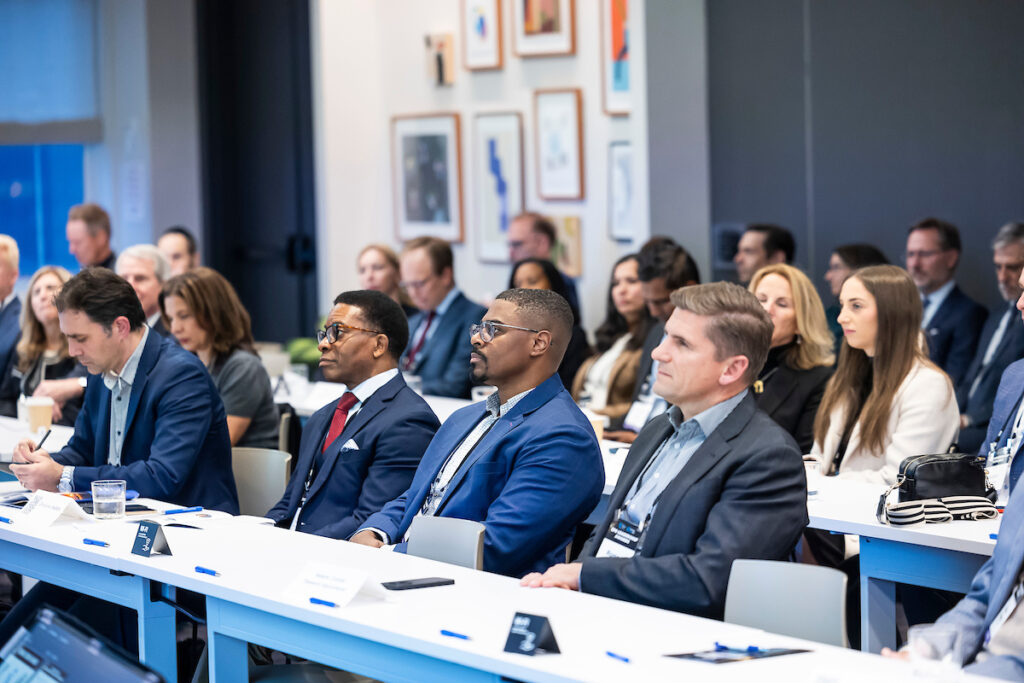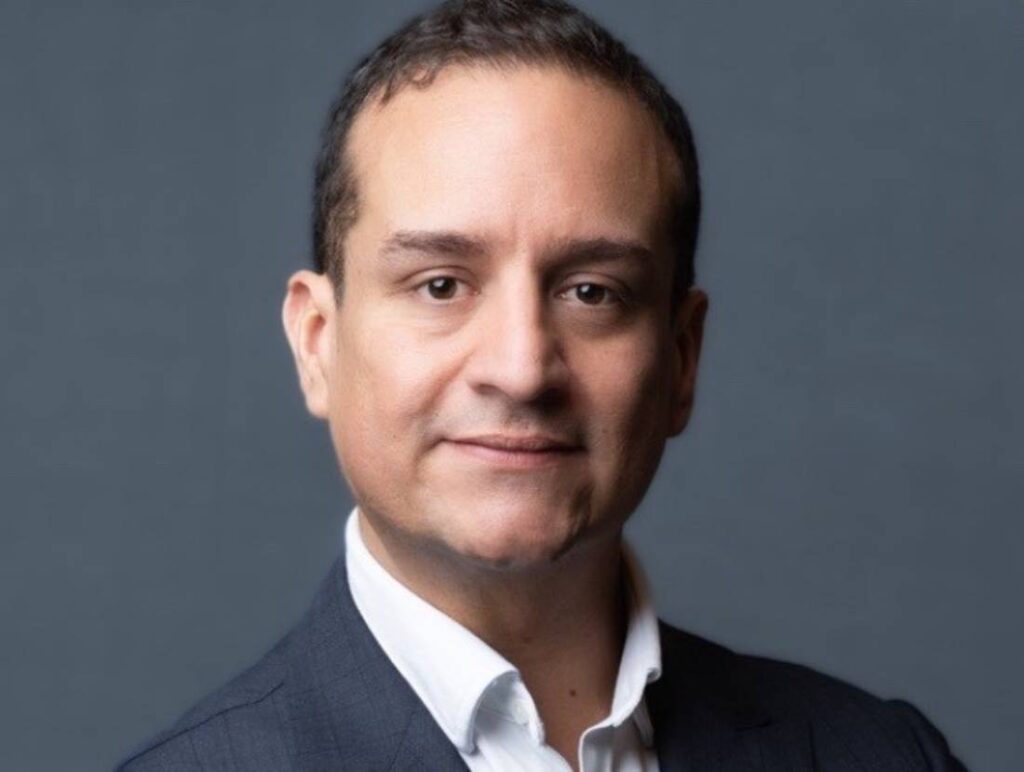Geopolitical turmoil, international conflicts and the president-elect’s “America First” policy will alter the trade landscape for U.S. businesses and force CFOs to question their assumptions about “the way the world works, the way the United States works, pretty much everything.”
That’s according to Beth Sanner, a former assistant director of national intelligence in President-elect Donald Trump’s first term. Sanner keynoted StrategicCFO360’s CFO Leadership Awards event in midtown New York on Monday.

Amid all the continuing unrest globally, including the latest strife in Syria and South Korea, Sanner warned the finance executive audience that “we’re in the middle of major changes—change that is technological, change that is political, change that is geopolitical,” said Sanner. “The worst thing we can do is think things are the same and hold here.”
In an address that covered the sweep of conflicts significant to U.S. economic interests and the supply chains of U.S. companies, Sanner tackled everything from the Russia-Ukraine war and the Middle East conflicts to the millions of dollars being spent on protecting international trade in the Red Sea to China’s drive to rid itself of reliance on U.S. trade.
Export Controls, Tariffs and Retaliation
Sanner, now director for geopolitics and strategy at consulting firm International Capital Strategies, suggested that to see around the corner and anticipate the policy outcomes of the second Trump administration, CFOs must question assumptions about President-elect Trump, too.
For example, Sanner, who sat in more than 100 briefings with Trump, said his “America first” policy “is no B.S.; it’s what he thinks about.” The other thing central to Trump’s mindset is a belief that the world (other nations) is trying to take advantage of the United States, said Sanner—whether that’s China stealing U.S. companies’ intellectual property, European nations not spending enough on the defense of the Western alliance or the flow of illegal immigrants across the Mexican border.
Those philosophies will underlie much of Trump’s foreign and economic policies. As to international trade, Sanner said, Trump will wield heavy tariffs to protect the competitiveness of U.S. industry and the country’s security interests. “Trump has called tariffs a potent tool, not only economically but for getting other things done outside tariffs,” Sanner said.
As Trump prepares to turbocharge the trade war he started six years ago with 60% tariffs on Chinese goods, though, China is preparing to retaliate, said Sanner. China’s leaders are pushing toward [becoming] historically dominant and economically self-reliant by reducing their dependencies on the U.S. and other countries. “However, China has a structural problem because domestic consumption makes up only half its GDP, and their economy right now depends on exporting their overcapacity,” said Sanner.
The prospects of Trump cutting a deal with China to buy more U.S. goods are not good. “Structurally, that’s a problem for China,” Sanner said. [And] “economically, they can’t do it. It would be bad for them to promise, and they don’t want to do it because it makes them dependent.” The result? Potentially a full-fledged trade war with the U.S.
Another trade tool—export controls—are about U.S. competitiveness and protecting the high-end technology built by U.S. businesses, said Sanner. “Export control is hugely important,” Sanner said. The Biden administration’s controls will continue under President-elect Trump to protect U.S. companies’ competitive advantage and intellectual property. However, Sanner expects Trump to further restrict exports, possibly in AI and cloud technologies. She expects the Trump administration to also crack down on licensing violations in China, as intellectual property theft poses credible economic and security hazards to the United States.
Supply Chain Dependencies

All of the above have ramifications for U.S. companies, whether or not they directly do business in China. Sanner advised CFOs to find where they have country-specific dependencies in their supply chains, particularly connected to China, and prepare to find different suppliers or renegotiate supply agreements. “I know a lot of you have already stepped up your purchases to create a buffer, but not everybody has the cash flow to do that,” Sanner said.
As occurred during the first Trump administration, when tariffs and retaliation caused the supply chains of some midmarket companies to blow up overnight, small and medium-sized companies may be most affected. While there may be large carve-outs in some export controls and tariff agreements, smaller companies had trouble lobbying for exemptions in the first Trump term because they didn’t have in-house people to help them with applying for exemptions from U.S. trade regulators, Sanner said.
Sanner recommended those companies act quickly reach out to local trade and business associations or national groups like the U.S. Chamber of Commerce and implore them for help in navigating the coming trade conflicts. “Ask your association, ‘What kind of help are you going to give us?” She added: “Start figuring out these things and get to the head of the line because you raised your hand early.”
As to President Trump, Sanner said, “It’s likely that [he] will get some good things out of just his very aggressive behavior. And some of you might not like how he goes about things. It’s uncomfortable, but it does sometimes yield results.”
Sanner’s revelations about other geopolitical risks, both in a pre-event interview and at the Leadership Awards, included:
On market volatility. “Part of the way that the next administration will deal with these [trade] issues is by keeping China on its back foot, and that means trying to be, in some ways, unpredictable. If you’re surprising China, keeping them on the back foot, markets can also feel a little off kilter.”
On the Russia-Ukraine war. “I think it’s becoming clear that it’s really the Russians who are going to be the main problem in [trying to end] this. … Putin’s not going to give an inch, at least for now. This is not going to be [solved] in a day.”
On the Houthis and disruption of Western shipping routes. “We need to end this Red Sea mission, because we are expending more of the very missiles that we need for Asia and in protecting Israel from Iran.”
On potential tariffs on European trade. “I can tell you, having met with a few diplomats recently, the EU is terrified and they’re cutting a deal, which is exactly what Trump wants.”
On the Middle East. “Trump has talked about the Abraham Accords and their being key to security and stability in the region. Well, the world has changed a lot in the last four years. Saudi Arabia wants different things, and one of the things they want is not this. They do not want the Palestinians who live in Gaza to be under Israeli rule, nor they do not want Israeli settlements in Gaza.”
On relations with Mexico: “Mexico has a high level of U.S. content in Mexico’s imports to the U.S. and vice versa. The United States-Mexico-Canada Agreement is up for renewal in 2026, and it won’t be straightforward. But President Trump’s warning to impose a 25% tariff on all Mexican imports if Mexico doesn’t stop the ‘onslaught of criminals and drugs’ is designed to put pressure on Mexico and probably will not be implemented.”







